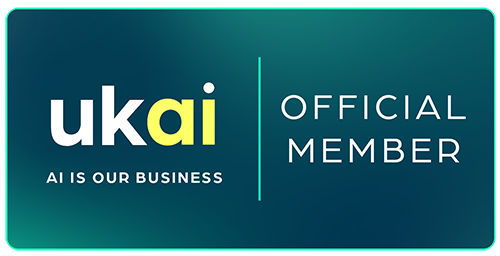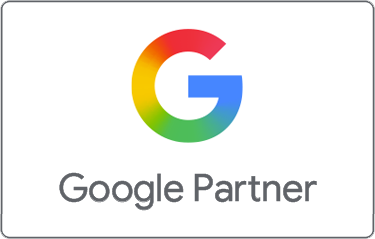With so many options available, choosing the right one can feel overwhelming. That’s why we’ve put together this guide to the Top 9 SEO Tools in 2025. From free tools to enterprise platforms, we’ll cover the features, pricing, and best use cases, so you can choose the tool that fits your business needs.
At Push, we help brands integrate these tools into AI-powered SEO strategies. Here’s our expert take on the platforms shaping search today.
How We Chose These SEO Tools
To make this list genuinely useful, we looked beyond popularity and hype. Each SEO tool included here was measured against six key criteria that matter most to businesses in 2025:
1. AI & Automation
Modern SEO is inseparable from AI. We prioritised tools that go beyond basic reporting and incorporate artificial intelligence for automation. This includes features like AI-powered content optimisation, SERP analysis, keyword clustering, and predictive ranking models.
Tools that save marketers hours of manual work by surfacing insights or generating recommendations ranked higher on our list.
2. Ease of Use & Integrations
A great SEO tool should fit seamlessly into your existing tech stack. We evaluated how easily each platform integrates with content management systems (CMS like WordPress), analytics suites (GA4), CRMs, and collaboration tools.
We also considered usability, from intuitive dashboards to clear reporting. Tools with steep learning curves or clunky UIs scored lower.
3. Data Accuracy
Data is the foundation of SEO. Tools that provide reliable keyword rankings, backlink analysis, SERP snapshots, and reporting stood out. Accuracy is especially critical for AI-driven tools, as flawed datasets lead to poor recommendations.
We factored in the reputation of each tool’s data sources, frequency of updates, and validation against live SERPs.
4. Pricing & Scalability
The best SEO tool should deliver value across business sizes. We reviewed each platform’s pricing tiers, flexibility, and scalability, whether it’s affordable for startups, offers professional plans for mid-sized businesses, or has enterprise-grade packages.
Scalability matters: businesses should be able to grow into advanced features without switching platforms.
5. Support & Training
Even the most powerful tool falls short without proper support. We looked at customer success resources, onboarding, tutorials, live chat, community forums, and training workshops.
Tools with active customer support and strong educational ecosystems scored higher, as they empower teams to get maximum value and keep pace with evolving SEO practices.
6. Technical SEO Capabilities
SEO isn’t just about content and keywords, technical SEO is the backbone of performance. We assessed whether each tool provides robust features for site auditing, crawl diagnostics, Core Web Vitals, mobile usability, and schema markup.
Tools like Screaming Frog stand out here, but even all-in-one platforms need strong technical foundations to be considered best-in-class in 2025.
What to Look for in an SEO Tool in 2025?
AI is now woven into every layer of SEO. The most effective tools in 2025 are those that use machine learning and natural language processing to take the heavy lifting out of manual SEO tasks.
Many of the innovations seen in top AI tools are now embedded into SEO platforms, offering predictive analytics, keyword clustering, and automated content briefs that save hours of work.
1. AI Features
AI is now woven into every layer of SEO. The most effective tools in 2025 are those that use machine learning and natural language processing to take the heavy lifting out of manual SEO tasks.
- Examples: Surfer SEO generates real-time content scores, while Jasper integrates SEO guidance into AI copywriting.
- Why it matters: These tools don’t just give you raw data; they interpret it and provide actionable insights.
- Pitfall to avoid: Don’t be lured by AI features that sound impressive but don’t add measurable value (e.g., tools that ‘generate’ content without considering SERP intent).
When reviewing SEO tools, ask: ‘Does this AI capability save my team time, improve accuracy, or directly impact rankings?’
2. Comprehensive vs. Specialist
SEO platforms generally fall into two categories: all-in-one suites and specialist tools.
- Comprehensive Suites (e.g., Semrush, Ahrefs): Cover everything from keyword research and backlinks to audits and reporting. Best for teams wanting a single platform.
- Specialist Tools (e.g., Screaming Frog for site audits, Clearscope for content optimisation): Focus deeply on one area of SEO. Best for teams that already have a stack and need to fill a gap.
- Why it matters: Choosing incorrectly can waste budget. For example, small teams may not need an enterprise suite, while agencies can’t afford the limits of free tools.
- Best practice: Many businesses combine the two, e.g., using Semrush for strategy, but adding Screaming Frog to dig into technical SEO.
When evaluating, ask: ‘Do I need breadth (all-in-one) or depth (specialist)?’
3. Budget & Value for Money
Price is only one part of the equation, the real question is ROI.
- Examples:
- Google Search Console is free and gives irreplaceable insights into indexing and search performance.
- Semrush may cost $139.95/month, but if it uncovers opportunities that bring in thousands in new traffic, it’s an investment, not an expense.
- Why it matters: A cheaper tool that doesn’t scale or provide accurate data could cost more in lost opportunities than a premium platform.
- Pitfall to avoid: Many teams pick tools purely because they’re popular, then underuse them. Paying £200/month for a platform and only using rank tracking is wasted spend.
When deciding, weigh the cost against ‘time saved, revenue gained, and whether the tool will grow with your business’.
4. Future-Proofing
SEO is one of the fastest-changing fields in digital marketing. With Google’s AI Overviews, Search Generative Experience (SGE), and constant algorithm shifts, yesterday’s toolset may already be outdated.
- Examples: Tools like Surfer SEO and Clearscope adapted quickly to AI-driven content scoring, while older tools that didn’t evolve lost relevance.
- Why it matters: A tool that fails to update with search engine changes may leave you working with incomplete or outdated insights.
- Best practice: Look for providers that actively roll out updates, announce AI integrations, and have a track record of adapting to Google’s updates.
- Pitfall to avoid: Locking into a long-term subscription with a stagnant tool vendor that isn’t investing in innovation.
The safest bet is choosing tools that demonstrate agility, constantly improving their AI models, datasets, and reporting features.
The Top 9 SEO Tools in 2025
1. Semrush

Overview:
Semrush remains one of the most powerful SEO platforms in 2025, offering a complete suite for keyword research, content optimisation, backlink tracking, and competitor analysis. Its recent AI-driven enhancements, like predictive keyword clustering and automated content briefs, make it an industry leader for businesses that want depth and breadth.
Key Features:
- AI-powered keyword research and clustering
- Comprehensive site audit reports
- Backlink analytics and monitoring
- Competitor benchmarking and SERP tracking
- Content marketing toolkit with AI assistance
Pros:
- Most comprehensive all-in-one platform
- Robust AI features for automation
- Trusted and accurate data sources
Cons:
- Expensive for freelancers or small businesses
- Steep learning curve for new users
Pricing:
Free trial + Paid plans: $139.95/mo (Pro), $249.95/mo (Guru), $499.95/mo (Business)
Best For:
Agencies, enterprises, and in-house teams that need a complete SEO hub.
Why Choose Semrush:
It’s the go-to tool for marketers who want one platform to manage every aspect of SEO.
2. Ahrefs
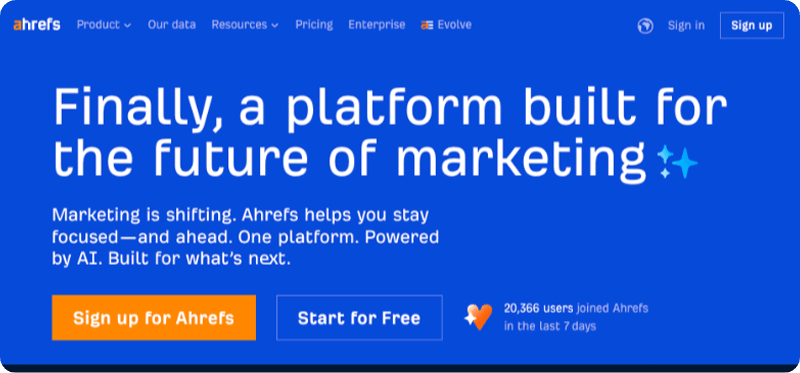
Overview:
Ahrefs has long been the gold standard for backlink data. In 2025, it continues to shine with one of the largest and freshest link databases available, now enhanced by AI-powered link growth forecasting and competitor SERP insights.
Key Features:
- Industry-leading backlink database
- Keyword Explorer with AI-driven suggestions
- Site Explorer for competitor research
- SERP feature analysis
- Rank tracking
Pros:
- Unmatched backlink data accuracy
- Excellent competitor insights
- Frequent updates to data sets
Cons:
- Less comprehensive for content optimisation
- Can be costly if used only for backlinks
Pricing:
Free trial + Paid plans: £23/mo (Starter), £99/mo (Lite), £1999/mo (Standard), £359/mo (Advanced), £1,199 (Enterprise)
Best For:
Marketers and agencies focused on link building and competitor analysis.
Why Choose Ahrefs:
It’s the best tool for understanding and building authority through backlinks.
3. Moz Pro

Overview:
Moz Pro combines ease of use with solid SEO fundamentals, making it ideal for small to mid-sized businesses. Its 2025 updates introduced AI-enhanced keyword suggestions and improved on-page graders, helping users make quick optimisations without advanced technical skills.
Key Features:
- AI-powered keyword difficulty scoring
- Rank tracking across multiple regions
- On-page grader with optimisation suggestions
- Link Explorer for backlink data
Pros:
- Beginner-friendly interface
- Affordable entry pricing
- Balanced feature set
Cons:
- Smaller backlink database compared to Ahrefs
- Limited technical SEO capabilities
Pricing:
Free trial + Paid plans: $49/mo (Starter), $99/mo (Standard), $179 (Medium), $299 (Large)
Best For:
SMBs and entry-level marketers looking for reliable SEO basics.
Why Choose Moz Pro:
It’s the perfect tool for those starting their SEO journey, balancing simplicity and functionality.
4. Screaming Frog SEO Spider
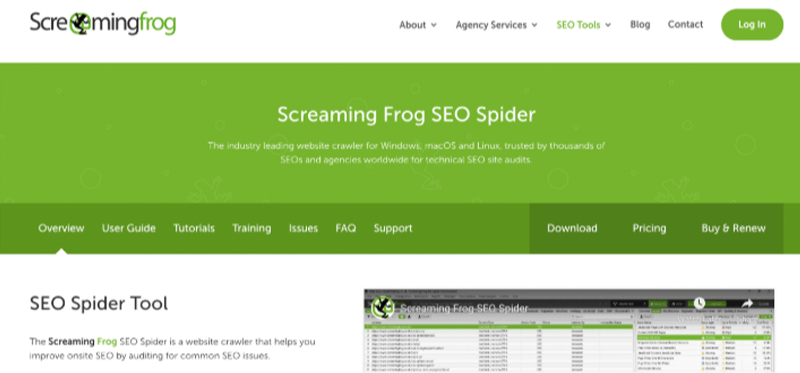
Overview:
Screaming Frog has become a staple for technical SEO audits. Its 2025 version now includes AI-driven health scoring and enhanced Core Web Vitals monitoring, making it indispensable for diagnosing and fixing site issues at scale.
Key Features:
- Website crawling for broken links, redirects, metadata
- AI-powered site health scoring
- Integration with GA4 and GSC
- Customisable crawl reports
Pros:
- The best tool for technical SEO audits
- Powerful even in its free version
- Constantly updated
Cons:
- Steep learning curve for non-technical users
- Limited to desktop software (not cloud-based)
Pricing:
Free version (up to 500 URLs), £199/year (Paid version)
Best For:
Technical SEOs, developers, and agencies performing deep site audits.
Why Choose Screaming Frog:
It’s the most trusted and accurate tool for diagnosing technical SEO issues.
5. Surfer SEO

Overview:
Surfer SEO has become a must-have for content teams, offering real-time optimisation scores and AI-generated content briefs. Its NLP-based SERP analysis ensures content aligns with what Google rewards in 2025.
Key Features:
- AI-driven SERP analysis
- Content Editor with live scoring
- Keyword Surfer browser extension
- Topic clustering
Pros:
- Excellent for content optimisation
- Easy integration with content workflows
- AI-powered suggestions improve speed and quality
Cons:
- Limited backlink and technical SEO functionality
- Can be expensive for small teams producing lots of content
Pricing:
Free trial + Paid plans: $99/mo (Essential), $219 (Scale), Custom pricing (Enterprise), $95 (AI Tracker)
Best For:
Content marketers and SEO teams focused on on-page optimisation.
Why Choose Surfer SEO:
It’s the best tool for creating SEO-optimised content at scale.
6. Clearscope
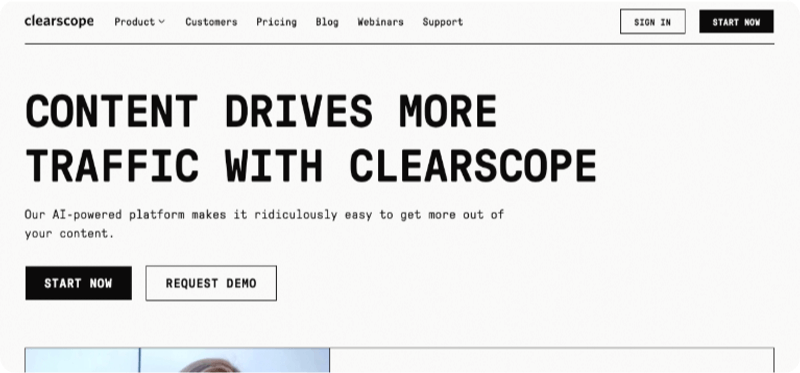
Overview:
Clearscope is known for its powerful content grading and topic modelling capabilities. In 2025, its AI-enhanced readability analysis and deep integration with Google Docs make it a favourite among publishers and agencies.
Key Features:
- AI-driven topic modelling
- Content scoring and readability tools
- Integration with Google Docs and WordPress
- Competitive content analysis
Pros:
- Excellent for producing authoritative content
- Intuitive interface for writers and editors
- Reliable recommendations
Cons:
- High cost compared to Surfer
- Narrower focus (only content optimisation)
Pricing:
Free trial + Paid plans: $189 (Essentials), $399 (Business), Custom pricing (Enterprise)
Best For:
Agencies, publishers, and large content teams needing high-volume optimisation.
Why Choose Clearscope:
It’s the most precise tool for ensuring content meets Google’s quality and relevance standards.
7. Google Search Console (GSC)
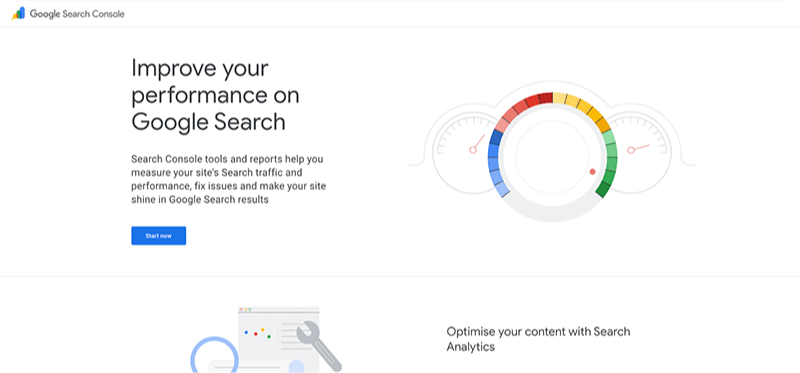
Overview:
Google Search Console is a non-negotiable tool for any website. It provides direct data on search performance, indexing issues, and Core Web Vitals. While not as feature-rich as paid platforms, it’s the backbone of any SEO toolkit.
Key Features:
- Performance reports (clicks, impressions, CTR)
- Indexing insights and coverage reports
- Core Web Vitals tracking
- Mobile usability checks
Pros:
- Completely free
- Directly from Google
- Essential for monitoring site health
Cons:
- Limited compared to paid tools
- No competitor analysis or keyword forecasting
Pricing:
Free
Best For:
All website owners, from small businesses to enterprises.
Why Choose GSC:
It’s the most essential free SEO tool for monitoring performance directly from Google.
8. Rank Math
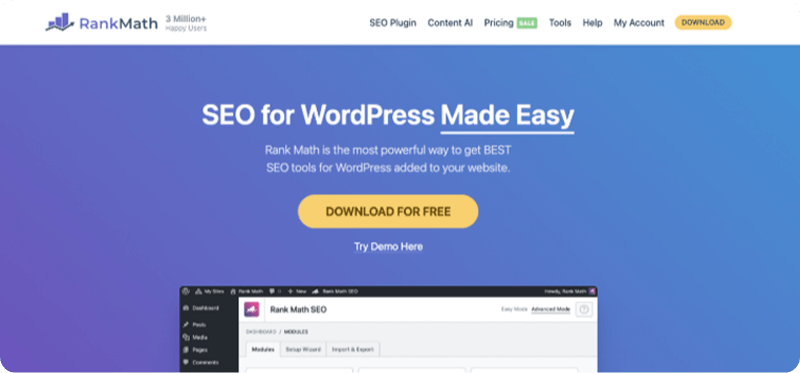
Overview:
Rank Math has become the most popular WordPress SEO plugin, combining simplicity with powerful features like schema builder and AI content suggestions. Its 2025 update improved automation for on-page optimisation.
Key Features:
- Built-in AI content optimisation
- Schema markup builder
- Keyword rank tracking
- Advanced on-page SEO analysis
Pros:
- Robust free version
- Easy to use for WordPress sites
- Strong automation features
Cons:
- Only available for WordPress
- Limited reporting compared to full SEO suites
Pricing:
Free trial + Paid plans: $49.99/mo (Agency), $20.99/mo (Business), $10.99/mo (Rank Math + WP Rocket), $6.99/mo (Pro)
Best For:
WordPress site owners who want a lightweight but powerful SEO plugin.
Why Choose Rank Math:
It’s the easiest way to manage SEO directly inside WordPress.
9. Jasper (SEO Mode)

Overview:
Jasper is best known as an AI writing tool, but its SEO Mode makes it highly valuable for marketers. Integrated with Surfer SEO, Jasper helps teams create SEO-optimised content quickly and at scale.
Key Features:
- AI writing assistant for blogs, ads, and web pages
- SEO Mode with Surfer integration
- Brand voice consistency tools
- Campaign content generation
Pros:
- Excellent for scaling content creation
- Saves time for marketing teams
- Strong integration with SEO workflows
Cons:
- Requires Surfer integration for full SEO functionality
- Output still requires human editing
Pricing:
Free trial + Paid plans: $69 (Pro), Custom pricing (Business)
Best For:
Marketing teams and agencies producing high volumes of SEO content.
Why Choose Jasper:
It’s the fastest way to combine AI copywriting with SEO optimisation.
Which SEO Tool is Best in 2025?
With so many options, the “best” SEO tool depends on your goals, team size, and budget. Here’s a breakdown of which platforms stand out in specific categories:
SEO Tools Comparison Table (2025)
Why Choose Push for AI-Driven SEO
While these tools are powerful, tools alone don’t guarantee success. What matters is how you use them strategically.
If you’re exploring the top SEO agencies in the UK, you’ll notice that many focus on traditional approaches. Push takes it further by blending proven SEO practices with AI-first strategies, helping clients future-proof their marketing and achieve measurable growth.
At Push, we:
- Integrate tools like Semrush, Surfer, and GSC into AI-powered SEO strategies
- Offer LLM optimisation to future-proof campaigns
- Provide SEO + CRO services that turn traffic into revenue
- Deliver training and workshops to help teams get the most from these tools
Explore our SEO services to see how we can supercharge your growth.
Ready to Supercharge Your SEO Strategy?
The future of SEO is AI-driven, and the right tools are only the beginning. As an AI marketing agency, Push helps businesses connect the dots between technology, SEO, and growth, turning the industry’s best tools into real-world results.
Contact Push today and see how we can help your brand dominate search in 2025.
FAQs about the Best SEO Tools
What is the best SEO tool in 2026?
Semrush is the most comprehensive tool, but the best choice depends on your goals. For content optimisation, Surfer is excellent; for backlinks, Ahrefs is unbeatable.
Which SEO tool is best for small businesses?
Moz Pro and Rank Math are affordable and beginner-friendly, making them great for SMBs.
Do I need multiple SEO tools?
Yes. Most businesses combine at least two tools (e.g., Semrush + Screaming Frog + GSC) for complete coverage.
Can AI replace SEO tools?
Not entirely. AI enhances SEO tools but human strategy is still required to interpret data and execute effectively.
Are there free SEO tools worth using?
Google Search Console is the most important free SEO tool. Pair it with free versions of Screaming Frog or Rank Math for extra insights.







































